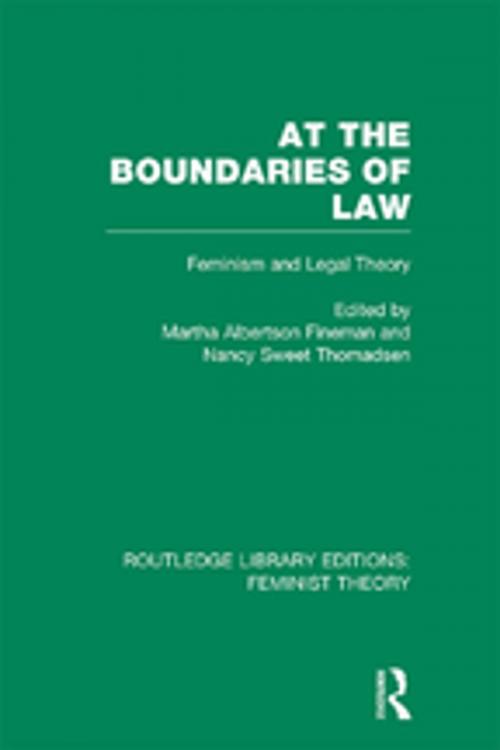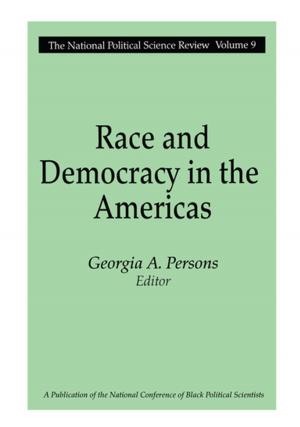At the Boundaries of Law (RLE Feminist Theory)
Feminism and Legal Theory
Nonfiction, Social & Cultural Studies, Social Science, Sociology| Author: | ISBN: | 9781136204777 | |
| Publisher: | Taylor and Francis | Publication: | May 20, 2013 |
| Imprint: | Routledge | Language: | English |
| Author: | |
| ISBN: | 9781136204777 |
| Publisher: | Taylor and Francis |
| Publication: | May 20, 2013 |
| Imprint: | Routledge |
| Language: | English |
Feminists have recently begun to challenge the powerful influence of the law on the social and cultural construction of women’s roles, identities, and rights. At the Boundaries of Law is a timely and path-breaking work that provides a series of non-technical, interdisciplinary explorations into the nature and effects of legal regulation on women’s lives. Together the essays examine the fertile – and radically revisionary – links between feminism and legal theory.
But At the Boundaries of Law rejects the abstract ‘grand theorizing’ of traditional feminist legal theory, focusing instead on the concrete and material implications of the legal injustices endured by women. These essays emphasise the complex diversity of female experience, collectively arguing for legal theory and practice that both recognises and accommodates the concept of ‘difference’ – in gender, class, race and sexual orientation.
At the Boundaries of Law also raises provocative questions about the methodology and future of feminist legal theory itself. In its rich variety of issues and approaches, this volume will command the interest not only of legal theorists, but of those interested in women’s studies, philosophy, politics, sociology and history. It is sure to set the future agenda for scholars, policymakers and anyone concerned with the role of law in society.
Feminists have recently begun to challenge the powerful influence of the law on the social and cultural construction of women’s roles, identities, and rights. At the Boundaries of Law is a timely and path-breaking work that provides a series of non-technical, interdisciplinary explorations into the nature and effects of legal regulation on women’s lives. Together the essays examine the fertile – and radically revisionary – links between feminism and legal theory.
But At the Boundaries of Law rejects the abstract ‘grand theorizing’ of traditional feminist legal theory, focusing instead on the concrete and material implications of the legal injustices endured by women. These essays emphasise the complex diversity of female experience, collectively arguing for legal theory and practice that both recognises and accommodates the concept of ‘difference’ – in gender, class, race and sexual orientation.
At the Boundaries of Law also raises provocative questions about the methodology and future of feminist legal theory itself. In its rich variety of issues and approaches, this volume will command the interest not only of legal theorists, but of those interested in women’s studies, philosophy, politics, sociology and history. It is sure to set the future agenda for scholars, policymakers and anyone concerned with the role of law in society.















